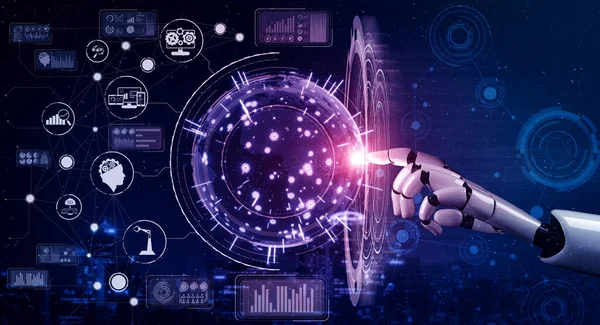Artificial Intelligence (AI) has been hailed as one of the most transformative technologies of our time, promising to revolutionize industries, improve efficiency, and enhance our daily lives.
However, it's essential to recognize that every coin has two sides, and AI is no exception. In this blog post, we'll delve into the dark side of AI, examining its downsides, ethical concerns, and potential challenges.
- Job Displacement
One of the most significant concerns surrounding AI is the potential for job displacement. Automation driven by AI can replace routine, repetitive tasks, leading to job losses in certain industries. While AI can create new job opportunities, the transition can be challenging for those who find themselves out of work.
- Bias and Discrimination
AI systems, including machine learning models, can inherit biases present in the data they are trained on. These biases can lead to discriminatory outcomes, reinforcing existing inequalities in areas like hiring, lending, and criminal justice. Addressing bias in AI is a complex challenge, requiring ongoing efforts to improve fairness and transparency.
- Privacy Concerns
AI technologies often rely on vast amounts of data to function effectively. This can raise significant privacy concerns, as the collection and use of personal data can be invasive. Striking a balance between the benefits of AI and the protection of individuals' privacy is a critical challenge for society.
- Security Risks
AI can be a double-edged sword in the realm of cybersecurity. While AI can help detect and prevent threats, it can also be used by malicious actors to create sophisticated cyberattacks. AI-powered hacking tools can potentially pose a significant threat to data security.
- Loss of Human Control
As AI systems become more complex and autonomous, there's a growing concern about the loss of human control. In high-stakes domains like autonomous vehicles and healthcare, the inability to override AI decisions can lead to catastrophic consequences.
- Ethical Dilemmas
AI can present ethical dilemmas, particularly in situations where machines must make life-or-death decisions. For instance, should a self-driving car prioritize the safety of its passengers over pedestrians, or vice versa? These dilemmas require careful consideration and ethical frameworks.
- Environmental Impact
The computational demands of AI, especially deep learning models, require significant processing power and energy. This leads to a substantial environmental impact, as data centers and AI infrastructure consume substantial amounts of electricity. Addressing the environmental footprint of AI is a growing concern.
- Dependence and Vulnerability
Overreliance on AI can make individuals and societies vulnerable in the event of system failures, cyberattacks, or disruptions in AI infrastructure. Ensuring that we have contingency plans and maintain essential skills is vital.
Conclusion
While AI holds immense promise and has the potential to revolutionize various aspects of our lives, it's essential to approach its development and deployment with caution and a critical eye. Recognizing the downsides and ethical concerns associated with AI is a crucial step in ensuring that we harness its power for the greater good of humanity. Striking a balance between the benefits and potential pitfalls of AI is an ongoing challenge that demands our vigilance and ethical responsibility as we navigate this rapidly evolving technological landscape.







0 Comments